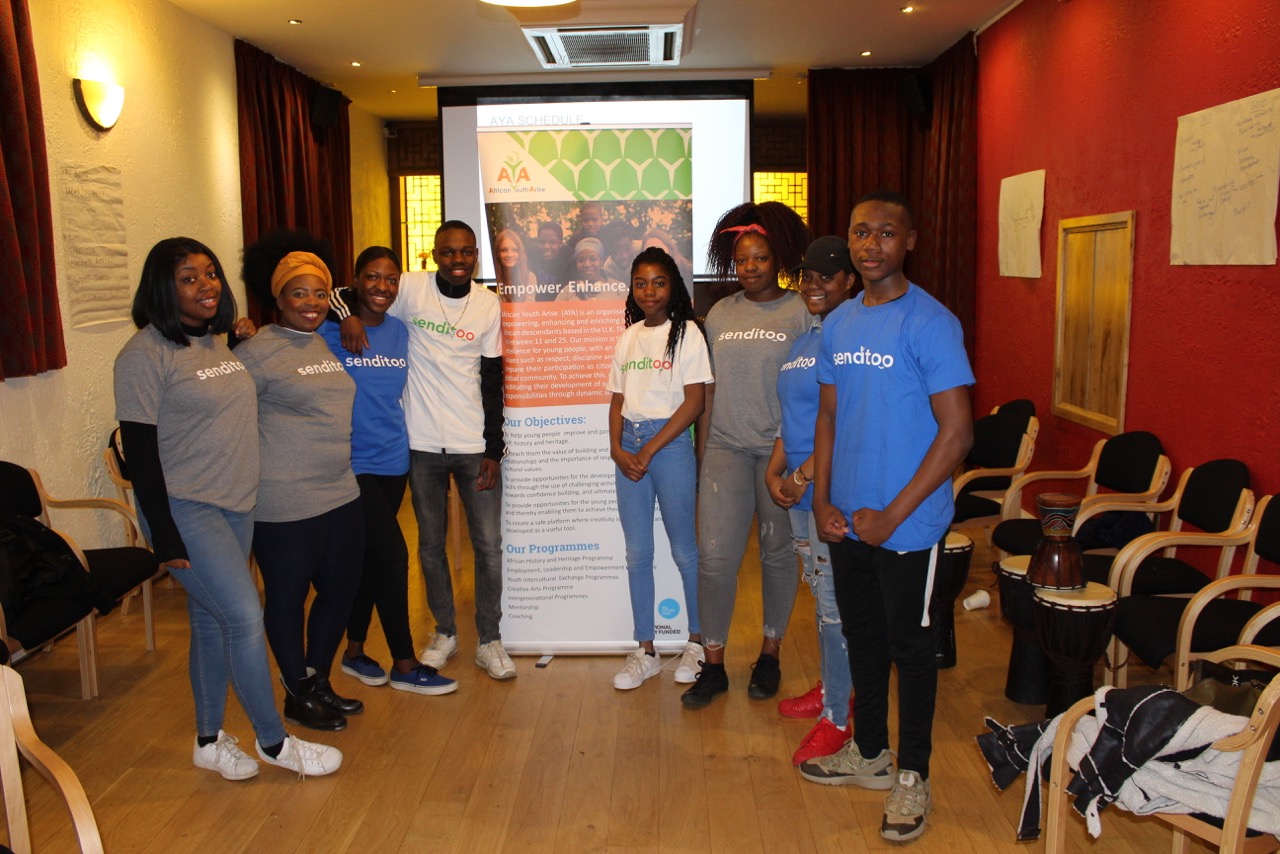Rumbi Mukoyi traces her drive to engage and empower young Britons of African descent to the day her 11-year-old brother was questioned by the police for a crime he did not commit.
‘Something had been stolen in our village and the victim said the suspect was mixed race,’ she says. ‘My brother just happened to come out of our house at that moment, and he is very light in complexion. You can imagine how a young Black person would feel having that interaction with the police.’
Not long afterwards, in 2011, the death of Mark Duggan in Tottenham sparked protests in cities across England. ‘When I saw the riots and looting, I thought this is a conflict between young Black men and the police,’ Rumbi says. ‘I knew I had to find a way of engaging the young people of our community.’ African Youth Arise (AYA) was born in 2013.

AYA provides skills development, mentoring and a peer community to 11-25 year olds in the East Midlands.
Since then some 400 young people have been through the programme, which offers skills development, mentoring and a peer community to 11- to 25-year-olds in the East Midlands. Monthly workshops cover such topics as African history and heritage, work and life skills, financial management, sexual and mental health, and include creative arts such as African drumming.
Each summer AYA runs a camp for some 70 participants, and they also take young people to participate in other youth programmes in the UK and Europe.
Rumbi describes young Britons of African descent as a ‘wounded generation’. Some were left behind with relatives while their parents got established in Britain and feel that they were abandoned. ‘When they finally re-join there is so much anger, so much commotion.’
Even where families have stuck together, the parents are often working so hard that they cannot engage with the challenges facing their teenagers. Meanwhile the kids feel torn: ‘they don’t know whether they are British or African or whatever’.

She speaks from experience. Born in Zimbabwe, she came to Britain with her parents when she was 14. Even before then, she felt a lack of belonging. Her father was a minister in the United Methodist church, moving from circuit to circuit every few years.
Sometimes this meant uprooting the family: at others the family split, with Rumbi staying with her mother, and her brother with their father. For a period Rumbi went to boarding school, which she hated. ‘The structure was a nightmare for someone who was dyslexic.’
By 1999, Rumbi had two more siblings and economic conditions were getting bad in Zimbabwe. Rumbi’s mother moved to Britain to study to be a nurse, and the family followed later in the year. Rumbi’s father set up a church for the Shona community in the East Midlands.
Both parents worked full time alongside their studies and church ministry, so many household tasks fell to Rumbi. ‘I sacrificed being a teenager,’ she says. ‘When I went to university I felt ill-prepared.
Rumbi studied at Sheffield University and then embarked on a career in human resources, alongside volunteering as youth coordinator for a local charity and working with the National Citizen Service of the University of the First Age.
For the last six years she has been employed by DHL, who, she says, are very supportive of her voluntary work.

In 2012, through a fellow Zimbabwean, Rumbi attended the School for Changemakers (SfCM), a five-day leadership programme for young people run by Initiatives of Change at Liverpool Hope University.
‘I remember arriving, feeling absolutely overwhelmed,’ she says. ‘That feeling disappeared completely when I met the organisers and the other attendees. For the first time since I came to Britain I felt I was being welcomed, embraced.’
SfCM is celebrating its 10th anniversary in January, with a conference in India. Over the last eight years, its regular follow-up events have given her a network of friendship and support.
‘If I am struggling there is always someone I can talk to,’ she says. ‘It’s a space where we are completely honest, where we can feel really safe and help each other along the way.’ Many of the network have come to AYA to run workshops and offer mentoring.
SfCM taught her the importance of taking time in silent reflection – ‘if I take time just to be in the quiet and take it all in, I find I come out with better solutions’ – and opened her heart to the possibility of forgiveness.
‘I had a really difficult relationship with my Dad: we are just as hot-headed and passionate as each other. The sacrifices he made affected us: we missed out because other people needed his time. I’ve just learnt to forgive. Not long ago we were laughing together and I thought a few years ago we would not be having this conversation.’
Africa Youth Arise asks its alumni who have gone on to university and careers to come back and give back to present participants. ‘I’m 35, there’s a huge gap between me and an 11-year-old,’ she says. ‘The model that has worked is to bring back young people who have been through the programme.’
In 2018 AYA took part in an EU funded Erasmus+ programme. ‘We ended up in Georgia, with young people from ethnic minorities in Montenegro, Georgia, Russia, the Czech Republic and Italy, sharing our stories and learning from each other.’ The 36 participants were astonished to discover the similarities in their experiences and struggles.
‘As a Black person in the UK, it sometimes feels as if you are alone when you face discrimination,’ said one of the AYA participants. Hearing from people ‘that don’t necessarily look like me’ had enabled her to relate on a different level.
‘I learnt that we need to become more tolerant and accepting in order to eradicate discrimination,’ said another. ‘Going forward I am going to be more open-minded and start talking to people from different backgrounds.’